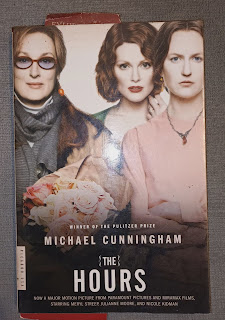We went up to Baguio last May 7 -10. Philippine Bible Society conducted a refresher seminar to translators and reviewers of the New Filipino Liturgical Bible (tentative title). The translation (for this version) of the books of the New Testament is finished and about to undergo an external review. PBS invited us (six pastors from the evangelical Christian denomination and five others, including me, who are not directly involved in church work, but are regular church goers) to live and learn for three days at their retreat house.
Bible translation of this version began in 2003, and the drafts have gone through several revisions and internal reviews by the Philippine Bible Society translation department team. I was also there during the conceptualization meet for this translation held in Tagaytay City, but during the time, my main concern was simply to get into the PBS loop so that I could understand how the process of Bible translation and other publication works. This time in Baguio, finally, the translators can rest while the external reviewers read the product of their sweat and tears. Bible translation is no joke. In our three days of stay in cool Baguio, I listened to those pastors debate and agree about all the nuances of those ambiguous original Greek texts, and I am truly amazed that God, in His grace, can allow us, mere mortals, to decode His Word. Simply and plainly, God wants to communicate, that’s why, Bible translation is never finished until the Lord Jesus comes.
For this particular version, the main question is who will be the target readers. There are at least already three well-used versions of the Bible in Tagalog, the Ang Biblia, Magandang Balita Biblia, and the New Pilipino Version (not PBS). Who will be served by this new Tagalog version? Since this is a literary, liturgical Bible, church people, (that is, all evangelical Christians who bring their Bibles to church and who listen to their pastors preach during the Sunday services) are the main target. We are made aware of this “segment” of the community of evangelicals who would be served best by a more literary translation of the Bible, one that is also more considerate of our oral tradition. in this version, the aural quality is given special emphasis.(Meanwhile, the MBB is meant mainly for those who are not necessarily going to church yet but are reading the Bible for whatever reason.)
One of our happy tasks was to practice reviewing the newest Tagalog translation of the Book of Jonah. We were grouped into teams, and fortunately, three of my teammates knew Greek by heart. (Now I can appreciate how important it is for pastors to master the original languages of the Bible, Greek and Hebrew). The Book of Jonah was not as easy as it looked because aside from being “different” from all the rest of the prophetic books it is also a “fantastic” tale. Given the recent fantaseryes on TV, I thought that Jonah wouldn’t be too difficult to translate if it were taken as a fantasy. This genre definitely makes Jonah easier to decipher and accept, but our task was not to make Jonah acceptable as a prophetic book to the general church-goer – that’s the Holy Spirit’s task – but to make sure that the translation stays faithful and accurate to the Hebrew text. Since I was with a team of pastors, who are all scholars of the Bible, I left the decoding of the difficult original text wholly to them, and I concentrated on the style. The Tagalog has got to be natural as contrasted from “wooden” or “literal” and of course, it should also be “literary”, that is, giving weight to what is expected of good Filipino literature.
As I contemplate the demands for Bible study while reviewing the style of this newest translation, I become a bit scared. On the third day as we practiced on the book of Galatians, I realized that it isn’t enough to simply be a native speaker of Tagalog. The original Greek text of this epistle was simply too choppy in many places, that I could imagine how difficult it was for the translators to make the Tagalog syntax flow as naturally as required by the common ear.
I was considering to spend two days for this task of review (and the rest of my days would be for all the other freelance jobs I could take on) but now I am having second thoughts. Maybe I need more time for this task. Dr. Arichea, the translation consultant from United Bible Society who was present at the seminar, jokingly commented that at the rate we poked at each verse, we would be finished in 2010!
My reservations all in place, I feel humbled and privileged to be part of this project. I plead for prayers for all the Bible translations going on throughout the world. Our world is getting smaller, and the Lord is coming soon. But before that, translation comes first. Everybody, meaning every body, has got to hear the Word of God in his own tongue (or in the world we live today, even sub-tongues).
Monday, May 15, 2006
Subscribe to:
Post Comments (Atom)
“The Hours” by Michael Cunningham: Time, Identity, and the Echo of Virginia Woolf
When I first read The Hours , I didn’t know a novel could hold so many worlds in a single breath. Michael Cunningham’s Pulitzer-winning b...

-
[ Filipiniana Book Shelf series focuses on books on the PAWR library - that is, bought books that have been read and are being re-read jus...
-
When I first read The Hours , I didn’t know a novel could hold so many worlds in a single breath. Michael Cunningham’s Pulitzer-winning b...


No comments:
Post a Comment